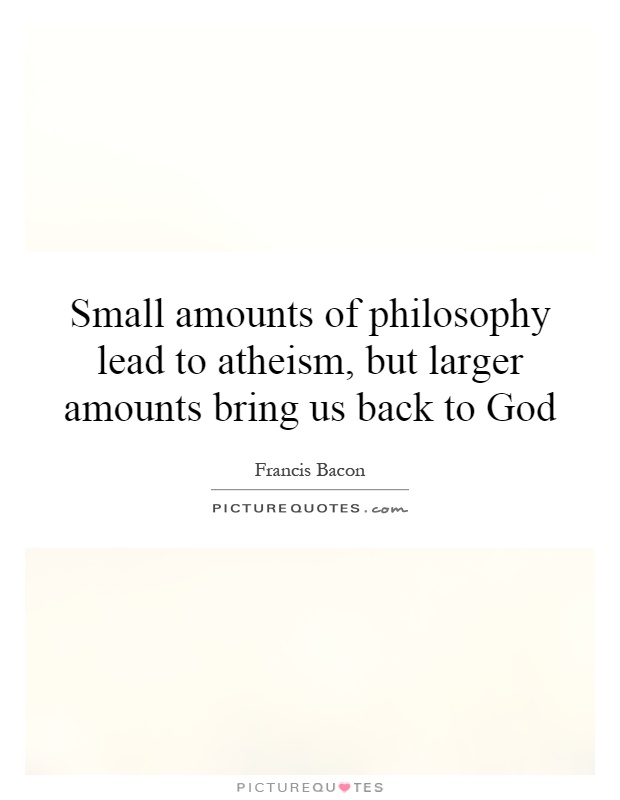Small amounts of philosophy lead to atheism, but larger amounts bring us back to God

Small amounts of philosophy lead to atheism, but larger amounts bring us back to God
Francis Bacon, a renowned philosopher and statesman, is often associated with the quote, "Small amounts of philosophy lead to atheism, but larger amounts bring us back to God." This statement reflects Bacon's belief that a superficial understanding of philosophy may lead individuals to question the existence of a higher power, but a deeper exploration of philosophical concepts ultimately leads to a recognition of the divine.Bacon's own philosophical works, such as "Novum Organum" and "The Advancement of Learning," emphasize the importance of reason and empirical evidence in the pursuit of knowledge. He believed that through the systematic study of nature and the application of the scientific method, humans could uncover the truths of the universe and improve their understanding of the world around them.
At first glance, Bacon's emphasis on reason and empirical evidence may seem to align with atheistic beliefs, as it encourages individuals to question traditional religious dogma and seek rational explanations for natural phenomena. However, Bacon's philosophy goes beyond mere skepticism and materialism to encompass a broader understanding of the human experience.
As individuals delve deeper into the complexities of philosophy, they may come to appreciate the limitations of human knowledge and the mysteries of existence that transcend empirical observation. This recognition of the inherent limitations of reason and the vastness of the unknown can lead individuals to a sense of humility and awe in the face of the divine.
Bacon himself acknowledged the existence of a higher power, referring to God as the "Author of Truth" and the ultimate source of knowledge and wisdom. He believed that true understanding could only be achieved through a combination of reason and faith, with each complementing and enriching the other.












 Friendship Quotes
Friendship Quotes Love Quotes
Love Quotes Life Quotes
Life Quotes Funny Quotes
Funny Quotes Motivational Quotes
Motivational Quotes Inspirational Quotes
Inspirational Quotes